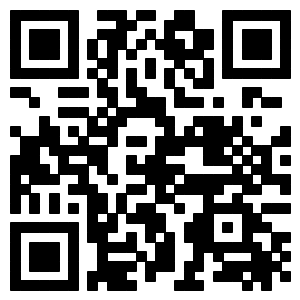文章-人教精通版小学英语3-6年级上册期中知识汇总已更新!
人教精通版小学英语3-6年级上册期中知识汇总已更新!
 254
254 全学科资料礼包
全学科资料礼包
本文已获授权
来源:小学英语(ID:xscyy100)
作者:小学英语
人教精通(三起)三年级上册Unit 1 知识汇总 一、词汇 cat(猫) monkey(猴子) dog(狗) duck(鸭子) panda(熊猫) bear(熊) pig(猪) rabbit(兔子) bird(鸟) mouse(老鼠) 二、习惯搭配 boys and girls 孩子们 三、常用表达 1. Hello! / Hi! 你好! 2. Good morning! / Morning! 早上好! 3. Good evening! 晚上好! 4. Good afternoon! 下午好! 5. Good night! 晚安! 6. Goodbye! / Bye! 再见! 四、重点句型 1. 自我介绍的句型: I’m ... / I am ... eg: I am Bob. I’m Jim. 2. 如何询问对方的名字: -- What’s your name? -- My name is ... eg: -- What’s your name? -- My name is Jack. 3. 如何询问对方是谁: -- Who are you? -- I’m ... eg: -- Who are you? -- I’m panda. 人教精通(三起)三年级上册Unit 2 知识汇总 一、词汇 学习用品:book(书) bag(包) pen(钢笔) pencil(铅笔) pencil-box(铅笔盒) ruler(尺子) eraser(橡皮) sharpener(转笔刀) glue(胶棒) marker(马克笔) 二、习惯搭配 take out 拿出 point at 指一指 三、常用表达 1. Glad to meet you. / Nice to meet you. 见到你很高兴。 2. Glad to meet you, too. / Nice to meet you, too. 见到你也很高兴。 3. Welcome! 欢迎! 4. Good morning. 早上好。 5. Good afternoon. 下午好。 四、重点句型 1. 介绍某人的句型: This is ... eg: This is Jim. 2. 介绍自己的物品的句型: This is my ... eg: This is my book. 人教精通(三起)三年级上册Unit 3 知识汇总 一、词汇 身体部位:nose(鼻子) eye(眼睛) face(脸) mouth(嘴) head(头) ear(耳朵) neck(脖子) arm(胳膊) hand(手) leg(腿) knee(膝盖) foot(脚) 二、习惯搭配 look at 看...... draw a face 画一张脸 big face 大大的脸 open your mouth 张开你的嘴 nod your head 点头 clap your hands 拍手 close your eyes 闭上眼睛 wave your arm 挥挥胳膊 三、常用表达 1. Look at my nose / arm / mouth/ ears. 看我的鼻子/胳膊/嘴/耳朵。 2. Touch your nose/ foot / eye. 摸摸你的鼻子/脚/眼睛。 3. How are you? 你好么?你好! 4. Fine, thank you! 很好,谢谢你! 5. Not very well. / Not so well. 不是很好。 6. Oh no! I’m sorry! 哦,不!我很抱歉! 四、重点句型 1. 介绍某物的特点: It is + 描述物品特点的形容词. eg: It’s big. 2. 介绍某人有一个什么样特点的身体特点: 主语 have/has + 形容词 + 身体部位. eg: She has big eyes. He has long arms. I have a big head. 人教精通(三起)四年级上册Unit 1 知识汇总 一、词汇 国家:China(中国) America(美国) England(英国) Singapore(新加坡) Canada(加拿大) 职业:teacher(教室) farmer(农民;农场主) postman(邮递员) doctor(医生) nurse(护士) driver(司机;驾驶员) 其他:good(好的) friend(朋友) brother(兄弟) sister(姐妹) boy(男孩) girl(女孩) 二、习惯搭配 be from 来自 good friends 好朋友 new friend 新朋友 play a game 玩一个游戏 三、常用表达 1. Hi! 嗨! 2. Be careful. 小心。 3. Oh, great! 哦,真棒! 4. Right! 正确! 5. Look! 看! 6. Yeah! 太棒了! 7. Guess! 猜一猜! 四、重点句型 1. 如何询问对方来自哪里: -- Where are you from? -- I’m from + 国家. eg: -- Where are you from? -- I’m from China. 2. 如何询问某人是谁: -- Who’s this / that boy / girl / man? -- He / She is ... eg: -- Who’s this girl? -- She is my sister. 3. 如何询问某人的职业: ① -- What does + 主语 + do? -- He / She is + 职业. ② -- Is he / she a + 职业? -- Yes, he / she is. No, he / she isn’t. eg: 1. -- What does your mother do? -- She is a doctor. 2. -- Is she a teacher? -- Yes, she is. 4. 如何表达见到对方很高兴: -- Nice to meet you. -- Nice to meet you, too. 人教精通(三起)四年级Unit 2 知识汇总 一、词汇 数字: one 一 six 六 two 二 seven 七 three 三 eight 八 four 四 nine 九 five 五 ten 十 thirteen 十三 fourteen 十四 fifteen 十五 sixteen 十六 seventeen 十七 eighteen 十八 nineteen 十九 twenty 二十 其他:class(班级) grade(年级) 二、习惯搭配 line up 排队 wake up 醒醒 from...to... 从......到...... 三、常用表达 1. How about you? 你呢? 2. No, thanks! 不了,谢谢! 3. Let’s play a game. 让我们做游戏吧。 四、知识点 “几年级几班”的表达方式:Class + 数字, Grade + 数字 五、重点句型 1. 如何询问对方所在的班级: -- Which class are you in? -- I’m in Class + 数字, Grade + 数字. eg: -- Which class are you in? -- I’m in Class One, Grade Two. 2. 如何询问某人的编号: -- What’s your number? -- I’m number +数字. eg: -- What’s your number? -- I’m number six. 3. 如何询问简单的加法: -- What’s + 数字 + and + 数字? -- It’s ... eg: -- What’s five and three? -- It’s eight. 4. 如何询问时间: -- What’s the time? -- It’s + 时间. eg: --What’s the time? -- It’s 3:15. 人教精通(三起)四年级上册Unit 3 知识汇总 一、词汇 果蔬名称: pineapple 菠萝 banana 香蕉 lemon 柠檬 potato 土豆;马铃薯 apple 苹果 tomato 西红柿 pear 梨 carrot 胡萝卜 watermelon 西瓜 cucumber 黄瓜 kiwi fruit 猕猴桃 eggplant 茄子 orange 橙子,橘子 green pepper 青椒 l orange 还有“橙色的”之意 二、习惯搭配 in English 用英语 peel the banana 剥香蕉 eat the watermelon 吃西瓜 show me the potato 给我看看土豆 smell the pineapple 闻一下菠萝 pass me the tomato 递给我西红柿 三、常用表达 1. Right! 对了! 2. Are you sure? 你确定吗? 人教精通(三起)五年级上册Unit 1 知识汇总 一、语音知识 b /b/ baby, bench, big, boy, bit p /p/ paint, perfect, power, pull, pet, pig c /k/ cake, cat, car, call, come, can 二、词汇 国家:Britain(英国) Australia(澳大利亚) France(法国) Germany(德国) Russia(俄罗斯) New Zealand(新西兰) be动词:is / am / are(是) 缩写形式:I’m = I am(我是) what's = what is(是什么) 其他:city(城市) road(道路) name(名字) I(我) you(你;你们) what(什么) where(哪里) hello(喂;嗨)(招呼用语) hi(喂;嗨)(招呼用语) your(你的;你们的) from(从) street(街道) 三、习惯搭配 come here 到这里来 come from 来自 welcome to... 欢迎来到...... in our class 在我们班里 四、常用表达 1. Good morning! 早上好! 2. Welcome to our class! 欢迎来到我们的班级! 3. Thank you! 谢谢你(们)! 4. Pleased to meet you. 见到你(们)很高兴。 5. Great! 太棒了! 6. How about you? 你呢? 五、重点句型 1. 介绍自己: I’m + 名字. eg: I’m Li Ming. 2. 介绍自己来自哪里: I’m from + 国家. I come from + 国家. eg: I’m from China. I come from Canada. 3. 如何询问对方来自哪里: ① -- Where are you from? -- I’m from + 国家. ② -- Where do you come from? -- I come from + 国家. eg: 1. -- Where are you from? -- I’m from China. 2. -- Where do you come from? -- I come from Canada. 4. 如何询问对方的名字: -- What’s your name? -- My name is + 名字. eg: -- What’s your name? -- My name is Amy. 5. 如何询问对方住在哪里: -- Where do you live? -- I / We live + in / on + 地点. eg: 1. -- Where do you live? -- I live in China. 2. -- Where do you live? -- I live on Xingfu Street. 6. 询问对方是否喜欢做某事: -- Do you like + 名词 / 动名词? -- Yes, I do. / No, I don’t. eg: 1. -- Do you like apples? -- Yes, I do. 2. -- Do you like dancing? -- No, I don’t. 人教精通(三起)五年级上册Unit 2 知识汇总 本单元学习要点:学会询问对方的年龄;学会描述人物的性格、外貌特点。 一、语音知识 t /t/ tall, tail, tower, toe, tell d /d/ daily, do, dangerous, day, dinner, dog l /l/ like, light, let, love, little, lot 二、词汇 形容词:clever(聪明的) quiet(安静的) smart(聪明的) handsome(英俊的) cute(可爱的) lovely(可爱的) active(活泼的;好动的) beautiful(漂亮的;美丽的) pretty(漂亮的;美丽的) 其他:her(她的) his(他的) eye(眼睛) nose(鼻子) hair(头发) he(他) she(她) that(那;那个) man(男人;男士) woman(女人;女士) 三、习惯搭配 how old 多大年龄 my new friend 我的新朋友 四、重点句型 1. 如何询问他人是谁: -- Who’s he / she / that +其他? -- He / She is ... eg: 1. -- Who’s that boy? -- He is my brother. 2. -- Who’s she? -- She is my mother. 2. 询问他人的名字: -- What’s his / her name? -- His / Her name is ... eg: 1. -- What’s her name? -- Her name is Amy. 2.-- What’s his name? -- His name is Jim. 3. 如何询问年龄: ①-- How old are you? -- I am + 年龄. ②-- How old is he / she? -- He / She is + 年龄. eg: 1. -- How old are you? -- I’m nine. 2. -- How old is he? -- He is ten. 4. 如何去描述一个人的性格、外貌特点: He / She is + 描述人物性格、外貌的形容词. eg: She is beautiful. He is active. 人教精通(三起)五年级上册Unit 3 知识汇总 本单元学习要点:学会询问某人职业的句型以及回答。 一、语音知识 m /m/ Monday, home, mother, mouth, woman n /n/ nose, net, name, not, neck, nice h /h/ happy, hit, hot, home, have, honey 二、词汇 职业名称:writer(作家) singer(歌手;歌唱家) dancer(跳舞者;舞蹈演员) worker(工人) actor(演员) actress(女演员) policeman(警察) policewoman(女警察) reporter(记者) police(警察;警方) 家庭成员:father(父亲) mother(母亲) parent(s)(父母亲) uncle(叔、伯、舅、姑、姨(父)) aunt(婶、伯、舅、姑、姨(母)) 其他:this(这;这个) family(家庭;家族) love(爱) a / an(一个) who(谁) 三、习惯搭配 in the future 在将来 today’s newspaper 今天的报纸 a good idea 一个好主意 四、重点句型 1. 如何介绍某人及他们的职业: This is... He / She is a / an + 职业名称. eg: 1. This is my father. He is a teacher. 2. This is Marry. She is an actress. 2. 询问某人的职业的句子及回答: -What do / does + 主语 + do? -He / She is a / an + 职业名称. eg: 1. -What do you do? -I am a student. 2.-What does your mother do? -She is a dancer. 人教精通(三起)六年级上册Unit 1 知识汇总 一、语音知识 ea /iː/ teacher, speak, read, teach ea /e/ head, bread, breakfast, instead ee /iː/ see, sleep, sheep, seen 二、词汇 时间:morning(早晨) afternoon(下午) evening(晚上;傍晚) 三餐:breakfast(早餐) lunch(午餐) dinner(晚餐) 其他:walk(走;步行) every(每一个) often(时常;常常) easy(容易) difficult(困难) 学科名称:English(英语) Chinese(语文) maths(数学) science(科学) PE(体育) art(美术) music(音乐) 频度副词:usually(通常) always(总是) often(经常) sometimes(有时) never(从不) 三、习惯搭配 daily life 日常生活 see a film 看电影 get up 起床 at home 在家 go to school 去上学 read stories 读故事 go home 回家 teach English 教英语 watch TV 看电视 cook dinner 做晚餐 do the housework 做家务 have piano lessons 上钢琴课 go to bed 睡觉 play the piano 弹钢琴 take a walk 散步 cook breakfast 做早餐 clean the window / door / floor 擦窗户 / 门 / 地板 in the morning / afternoon / evening 在早晨 / 下午 / 晚上 have breakfast / lunch / dinner 吃早餐 / 午饭 / 晚饭 v play the + 乐器名称 (演奏某种乐器) 四、常用表达 1. School begins. 开始上课。 2. School is over. 放学。 3. How about you? 你呢? 4. Sure! 当然! 五、重点句型 1. 如何询问对方在星期几做什么: -- What do you do on + Sundays / Saturdays / Fridays? -- I + 动词原形 + 其他. eg: -- What do you do on Fridays? -- I have an art lesson. 2. 学校在几点开始上课的句型: School begins at + 时间. eg: School begins at eight o’clock. 3. 学校几点放学的句型: School is over at + 时间. eg: School is over at 5:30. 人教精通(三起)六年级上册Unit 2 知识汇总 u 本单元学习目的:能够熟练表自己的兴趣爱好;同时能够询问其他人的兴趣爱好。 一、语音知识 oo /uː/ pool, cool, school oo /ʊ/ cook, book, good, look oa /əʊ/ coat, boat, float, goat 二、词汇 动词:open(打开) collect(收集) plant(种植) drink(喝) cry(哭) 名词:hobby(爱好) map(地图) box(盒子) colour(颜色) dad(爸爸) mum(妈妈) plant(植物) flower(花) tea(茶) photo(照片) kid(小孩) baby(婴儿) 形容词:hungry(饿的) 三、习惯搭配 collect toy cars 收集玩具汽车 cook meals 做饭 collect stamps 收集邮票 play computer games 玩电脑游戏 collect picture cards 收集图片 make dolls 做布娃娃 go fishing 去钓鱼 take photos 照相 plant flowers 种花 have a look 看一看 feed the baby 喂婴儿 drink Chinese tea 喝中国茶 四、知识点 v be interesting in + 名词/动词-ing (对......感兴趣) v take care of... (把......照顾好) 五、常用表达 1. That’s wonderful! 那太好了! 2. That’s great! 太棒了! 3. How about you? 你呢? 4. How cute! 好可爱啊! 5. What a super kid! 多么了不起的小孩啊! 六、重点句型 1. 如何询问某人的爱好是什么: ① -- What’s your hobby? -- My hobby is ... ② -- What’s + 形容词性物主代词/名词所有格 + hobby? -- 形容词性物主代词 + hobby is + 其他. eg: 1. -- What’s your hobby? -- My hobby is planting flowers. 2. -- What’s your mother’s hobby? -- Her hobby is reading books. 2. 询问对方对什么感兴趣: -- What are you interesting in? -- I’m interesting in + 名词/动词-ing. eg: -- What are you interesting in? -- I’m interesting in dancing. 人教精通(三起)六年级上册Unit 3 知识汇总 一、语音知识 ow /əʊ/ bowl, know, low, show ow /aʊ/ power, how, cow, now oy /ɔɪ/ joy, toy, boy 二、词汇 time(时间) after(在......后) then(那时) me(我(I的宾格)) bye(再见) jelly(果冻) kind(种类) candy(糖果) sure(当然) 三、习惯搭配 star-shaped cake 星形蛋糕 cut the cake 切蛋糕 heart-shaped cake 心形蛋糕 eat the cake 吃蛋糕 invitation cards 邀请卡 make a wish 许愿 ice cream 冰淇淋 light the candles 点蜡烛 invite your friends to your party 邀请朋友参加聚会 celebrate your birthday with your friends 与朋友庆祝生日 give a birthday card to your friend 向朋友赠送生日贺卡 sing a birthday song 唱生日歌 blow out the candles 吹蜡烛 fruit pie 水果派,水果馅饼 四、常用表达 1. What about you? 你呢? 2. That’s wonderful! 好极了! 3. Happy birthday! 生日快乐!
本文转载自“小学英语”(ID:xscyy100)。
小学英语为更多小学生提供小学英语学习指导,帮助孩子培养良好的英语学习习惯,让孩子充分感受学习英语乐趣,扎实基础,提高孩子英语成绩。
查看更多

声明:本文由上哪学团队(微信公众号ID: shangnaxue)原创整理制作,转载请注明来源和出处,否则追究法律责任。








